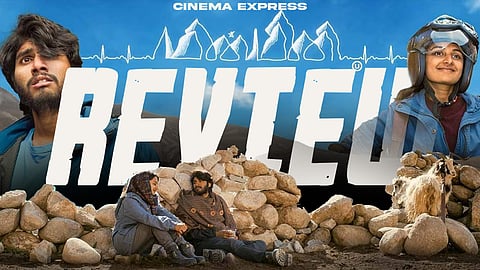Minmini Movie Review: Excessive melodrama meets didactic storytelling
Excessive melodrama meets didactic storytelling(2 / 5)
In the realm of films that try to have meaningful conversations with their audience, there exists a gap between ‘trying hard’ and ‘trying too hard’, where the charm of effort disintegrates into desperation. Unfortunately, Halitha Shameem’s Minmini crosses this gap with such aggressive self-indulgence. The film has the inherent charm of an almost-decade-long production, actors who grow up on-camera, picturesque visuals, and a refreshing premise. However, all of that crumbles by the corrosive effect of the film’s desperate attempts to connect with the audience through half-baked philosophy and didactic storytelling.
Minimini has perhaps the most extremely contrasting halves for any film. The first half revolves around a boarding school in Ooty, following a group of school kids. And without a warning, the second half pushes us into the sprawling, magnificent landscape of the Himalayan range, as we follow two of the school kids, now adults, as they bike across the mountain range. The first half is noticeably more amateurish, in both the performances and filmmaking. However, until a pivotal moment changes the course of events in the story, the film keeps us fairly engaged.
Paari, everyone's favourite student in the school, bullies the new kid on the block, Sabari, and they eventually become friends, as is tradition. Halitha Shameem deserves praise for trying her best to not portray the interpersonal relationship of school boys through an adult lens, as the kids feel like kids for once in a Tamil film. The cumulative effect of several small filmmaking touches makes sure that Paari doesn't come across as an evil bully and it is also believable when the two eventually become friends. However, all the painstaking attention to capture the subtleties of friendship is unfortunately rendered ineffective by the painfully obvious storytelling. The filmmaker also uses Khatija Rahman's music to overstate every single emotional beat. Despite an overwhelming soundtrack, it is easy to spot that the music is largely pleasant and it could have worked incredibly well with a measured grip from the director.
While we are already aware of the change in dynamics between Paari and Sabari, the film goes the extra length to spell it out through certain scenes, like when Sabari is reading a book called 'A Good Friend' while Paari exchanges friendly jibes. As if that wasn’t enough, Halitha goes the extra length to fill the entire screen with a quote from the book that reads, “All great friendships start on a note of rivalry.” In another moment, through a montage, we are shown how Sabari deals with Paari’s absence by adopting his personality, told through the perspective of Praveena. As if an entire montage wasn’t enough, we are also shown Praveena somberly writing on a fogged-up window, “Are you trying to be Paari?”
While it starts off with a refreshing pace and the tone of a feel-good story, the first half of the film ends like a PSA (Public Service Announcement) video meant to promote a good cause. The second half is filled with the breathtaking visuals of the Himalayan range, which feels like a breath of fresh air after all the melodrama. Here, the film cuts to the core theme of how guilt ties a person to their past, by stitching together multiple slice-of-life travel episodes. Here, Minmini professes its themes, philosophies, and outlook on life through Praveena’s perspective. However, the pop philosophy is delivered through Tumblr-era quotes like “We are all stardust” and other such painfully simplistic and outdated dialogues.
Towards the end, Sabari confesses to a group of fellow bikers that he doesn’t really have a destination in mind and is only driving aimlessly around the Himalayan range. The important difference between Sabari and the film is that he is aware of his aimlessness, while the film is desperate to sell you that it knows where it is going, but it clearly does not. Minimini is still a refreshing departure from the onslaught of hyper-violent films plaguing the Tamil film industry in recent times. The setting, the story, the visuals, and even the indulgent pace are inviting, until the story is squandered to leave way for didactic lessons about life and self-acceptance, and the film becomes exhausting and self-indulgent.

